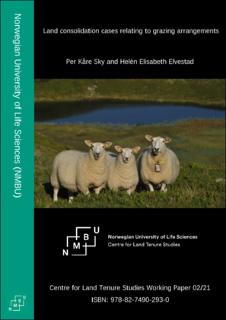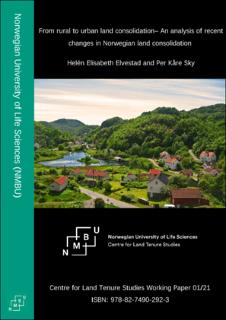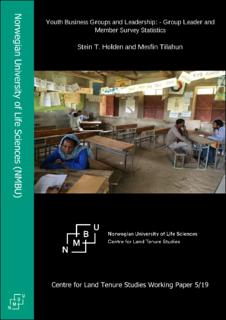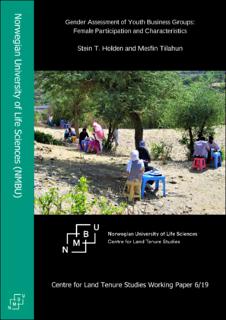Location
NMBU's mission is to contribute to the well-being of the planet. Our interdisciplinary research generates innovations in food, health, environmental protection, climate and sustainable use of natural resources.
About NMBU
NMBU's research is enabling people all over the world to tackle the big, global challenges regarding the environment, sustainable development, how to improve human and animal health, renewable energy sources, food production, and land- and resource management.
Members:
Resources
Displaying 1 - 5 of 98Land consolidation cases relating to grazing arrangements
Land consolidation courts deal with cases where the relationship between holders of grazing rights needs be regulated, but also where the rights holders are competing with other potential land uses, such as building holiday cabins, forestry, hunting, etc. These cases are governed by the provisions of sections 3-8 and 3-10 of the Land Consolidation Act.
From rural to urban land consolidation– An analysis of recent changes in Norwegian land consolidation
In most countries, land consolidation was first introduced in rural areas, with legislation suitable for urban areas being drafted at a later date. This is also true of Norway. The first evidence of urban competency in the legislation is found in the Land Consolidation Act from 1950. It is important to note that in Norway land consolidation remains the exclusive province of the court system. This, as far as we know, is unique for Norway.
Youth business groups and leadership : group leader and member survey statistics
This working paper is an output from the research project “Youth Business Groups for Sustainable Development: Lessons from the Ethiopian Model” that is funded by Research Council of Norway under the NORGLOBAL2 research program for the period 2019-2022. This working paper provides a summary of baseline survey data collected in the period January-May 2019 primarily from 2427 sampled members of 246 active youth business groups in four districts in the Tigray Region of Ethiopia.
Gender assessment of youth business groups : female participation and characteristics
This working paper is an output from the research project “Youth Business Groups for Sustainable Development: Lessons from the Ethiopian Model” that is funded by Research Council of Norway under the NORGLOBAL2 research program for the period 2019-2022. This working paper provides updated and extended information on the gender differences among group members and how these are related to likelihood of becoming group board members and leaders.
Urban proximity, demand for land and land prices in Malawi
We assess the spatial and intertemporal change patterns of farmland prices using per hectare minimum willingness to accept (WTA) sales and rental prices in Malawi. We use three rounds of nationally representative household farm panel data from the Living Standards Measurement Surveys (LSMS), collected in 2010, 2013 and 2016. We study price changes by splitting the sample in quintiles based on distance from the nearest major city, building on the von Thünen theory and urban growth model. Generally, WTA land prices decrease with distance from urban areas.






